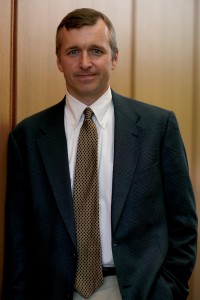Understanding the Rising Power of China
In a world where “Made in China” is more familiar than the Pledge of Allegiance, it seems that China is gaining a stronger foothold in American culture. To many, this rise in power poses a dangerous threat to American influence in Asia and beyond.
Professor Thomas J. Christensen takes issue with the view of China as a rival to the United States. In his new book, The China Challenge: Shaping the Choices of a Rising Power, he argues that Chinese leadership faces countless internal issues — especially the threat of domestic instability — which prevent the country from being considered a global “peer competitor.” Christensen is the William P. Boswell Professor of World Politics and director of the China and the World Program at Princeton.
Drawing on years of experience as a diplomat in East Asian affairs, Christensen warns that China nevertheless is powerful enough to destabilize East Asia as well as to influence political and economic affairs around the world. The challenge, Christensen says, lies in redirecting China’s path from regional aggression towards active participation in international initiatives. If China refuses to collaborate, efforts to control nuclear proliferation and climate change will flounder. Christensen argues that the United States should not block China’s rise, but should help shape its choices in these issues.













No responses yet